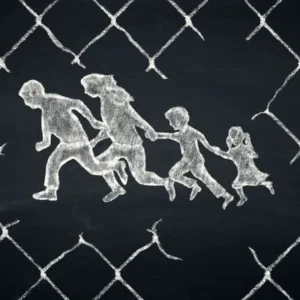The UK government has announced a temporary suspension of new applications under the dedicated refugee family reunion scheme, a move that will take effect immediately. Home Secretary Yvette Cooper explained that the decision aligns refugees with the same restrictions as other migrants seeking to bring family members to the UK, including minimum income requirements of £29,000, adequate accommodation, and proof of basic English proficiency. The suspension comes amid ongoing criticism of the government’s handling of asylum seekers, particularly the use of hotels to house migrants arriving via small boats.
Cooper noted that the family reunion rules were initially designed to help those fleeing conflict and persecution, but current conditions in the UK require additional restrictions. Unlike European countries such as Denmark and Switzerland, which impose longer waiting periods for family reunion applications, UK refugees could previously apply within about a month—often before leaving asylum housing. This rapid processing has contributed to an increase in homelessness cases, with refugee families seeking council support to avoid being without shelter.
Regular immigration rules will now apply to refugee family reunion applications, with further reforms to be announced later this year and implemented by spring. The government is under pressure to manage small boat crossings and public protests over asylum seeker accommodations. Conservative shadow home secretary Chris Philp criticized the changes as insufficient and urged the revival of the scrapped Rwanda plan to deter illegal Channel crossings.
The government is also considering changes to its interpretation of the European Convention on Human Rights (ECHR) regarding immigration and deportation cases. There are growing calls across political lines to suspend certain ECHR provisions or withdraw from the treaty entirely. Meanwhile, the first migrant returns under the UK-France agreement are expected later this month. So far in 2025, over 28,000 migrants have arrived in the UK via small boats, with August marking the lowest number of crossings for that month since 2019, though smuggling operations appear to be transporting more individuals per vessel.






